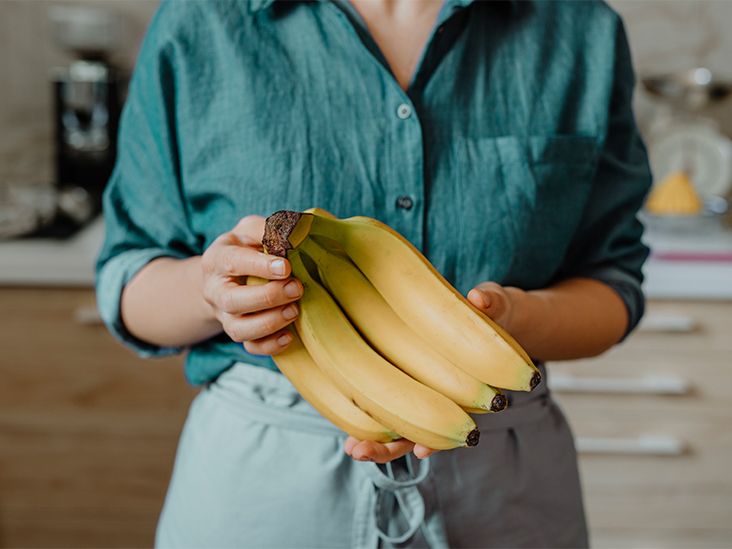
Maximize Your Health: Exploring 7 Proven Benefits of Chia Seeds
Curious about the hype around those tiny seeds popping up everywhere? Chia seeds aren't just a trendy health food; they're packed with astonishing nutritional value. Let’s explore seven science-backed reasons why incorporating chia seeds into your diet could be a game-changer for your well-being.
1. Discover the Nutritional Powerhouse of Chia Seeds
Chia seeds, originating from Salvia hispanica L., were a staple in ancient Aztec and Mayan diets, valued for both nutrition and medicinal properties. Today, these tiny seeds provide a wealth of nutrients in a small package.
Just 2 tablespoons (approximately 1 ounce or 28 grams) delivers:
- Calories: 138
- Protein: 4.7g
- Fiber: 9.8g (35% of its weight!)
- Omega-3s: 5g of ALA
- Significant amounts of essential minerals like calcium, magnesium, and zinc.
![]()
This impressive profile makes chia seeds a convenient way to boost your daily nutrient intake.
2. Unleash the Antioxidant Properties of Chia Seeds
Chia seeds are loaded with antioxidants that combat free radicals in your body. These antioxidants, including chlorogenic acid, caffeic acid, and quercetin, protect against cell damage and may reduce the risk of chronic diseases.
Antioxidants in chia seeds offer potential benefits such as:
- Protecting delicate fats in the seeds from spoilage.
- Supporting heart and liver health.
- Exhibiting anticancer properties.
Embrace the power of these tiny seeds to bolster your body's defenses.
3. Can Chia Seeds Aid Weight Management?
If you're trying to manage your weight, chia seeds could be a helpful addition to your diet. Their high fiber content promotes feelings of fullness, potentially reducing overall food intake.
Here's how chia seeds may support weight management:
- High Fiber: With nearly 10g of fiber per ounce, chia seeds contribute to satiety.
- Protein Content: Protein can help reduce appetite and control cravings.

While results vary, incorporating chia seeds into a balanced diet may support your weight management goals.
4. Support Heart Health with Chia Seeds
The combination of fiber and omega-3 fatty acids in chia seeds may contribute to a healthier cardiovascular system. Soluble fiber helps lower bad cholesterol levels, while ALA, an omega-3 fatty acid, has been linked to reduced heart disease risk.
Benefits for your heart:
- Fiber Power: Soluble fiber helps lower LDL (bad) cholesterol.
- Omega-3 Boost: ALA supports decreased heart disease risk.
Further research is ongoing, but the initial findings are promising.
5. Strengthen Bones with Essential Nutrients from Chia Seeds
Chia seeds provide several key nutrients vital for maintaining strong and healthy bones. These include calcium, phosphorus, and magnesium. Adequate intake of these minerals is essential for bone mineral density.
Key nutrients for bone health in chia seeds:
- Calcium: A cornerstone of bone structure.
- Phosphorus: Works alongside calcium for bone strength.
- Magnesium: Contributes to bone mineral density.
Consider chia seeds as a natural way to support your skeletal system.
6. Blood Sugar Regulation and Chia Seeds
Emerging research suggests that chia seeds may play a role in regulating blood sugar levels. Their high fiber content and beneficial compounds can improve insulin sensitivity, which is crucial for managing blood sugar after meals.
How chia seeds may aid blood sugar management:
- Improved Insulin Sensitivity: Animal studies indicate a positive effect on insulin function.
- Stabilized Blood Sugar: Limited human studies suggest that chia seeds may help lower post-meal blood sugar spikes.
Note that more studies are needed to fully understand this connection.
7. Effortless Ways to Add Chia Seeds to Your Daily Routine
One of the best things about chia seeds is how easy they are to incorporate into your diet. Their mild flavor makes them a versatile addition to almost any meal.
Here are a few ideas:
- Sprinkle them on cereal, yogurt, or salads.
- Add them to smoothies, oatmeal, or baked goods.
- Use them as an egg substitute in recipes.
- Create a simple chia seed gel by mixing them with water.

With their ease of use, chia seeds can seamlessly fit into your lifestyle.
Frequently Asked Questions About Chia Seeds
- How much should I eat daily? A typical serving is 1 ounce (2-3 tablespoons).
- What happens if I eat them every day? Daily consumption may support weight loss and bone health; start with a small amount and drink plenty of water.
- Can chia seeds reduce belly fat? Some studies show potential for reducing visceral fat, but more research is needed.
- Is one spoonful a day good for me? A tablespoon is a small dose, but increasing it slightly may provide greater benefits.
Final Thoughts: Embracing the Potential of Chia Seeds

Chia seeds offer a range of potential health benefits thanks to their rich nutritional profile and versatility. From supporting weight management to promoting heart and bone health, these tiny seeds are worth considering as part of a balanced diet. As research continues to unfold, the full extent of their benefits will become even clearer.
















